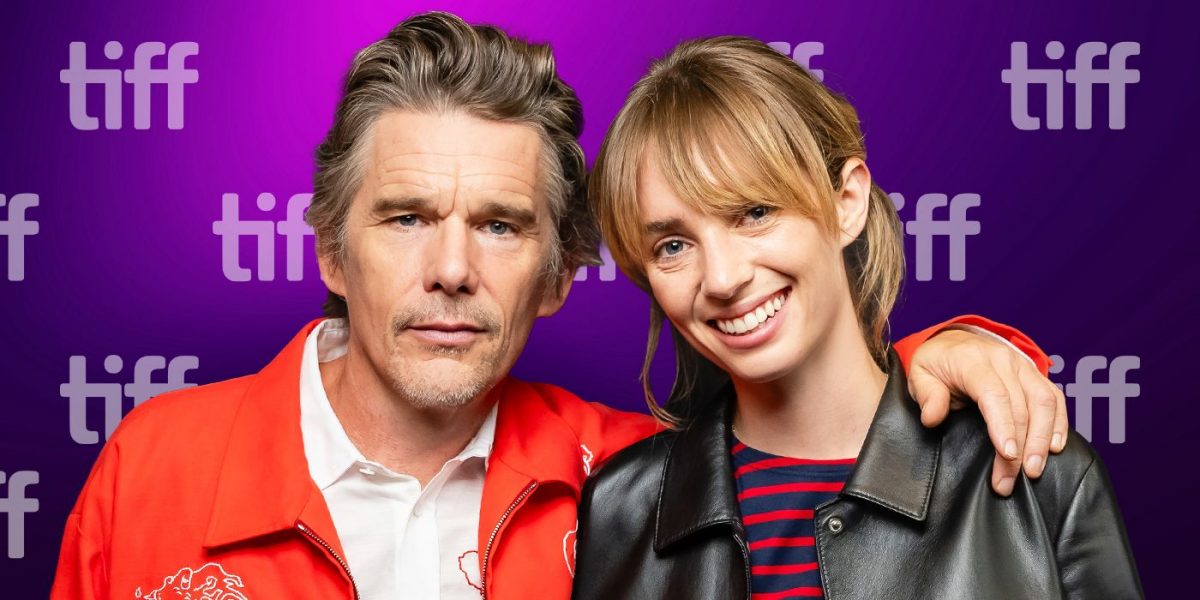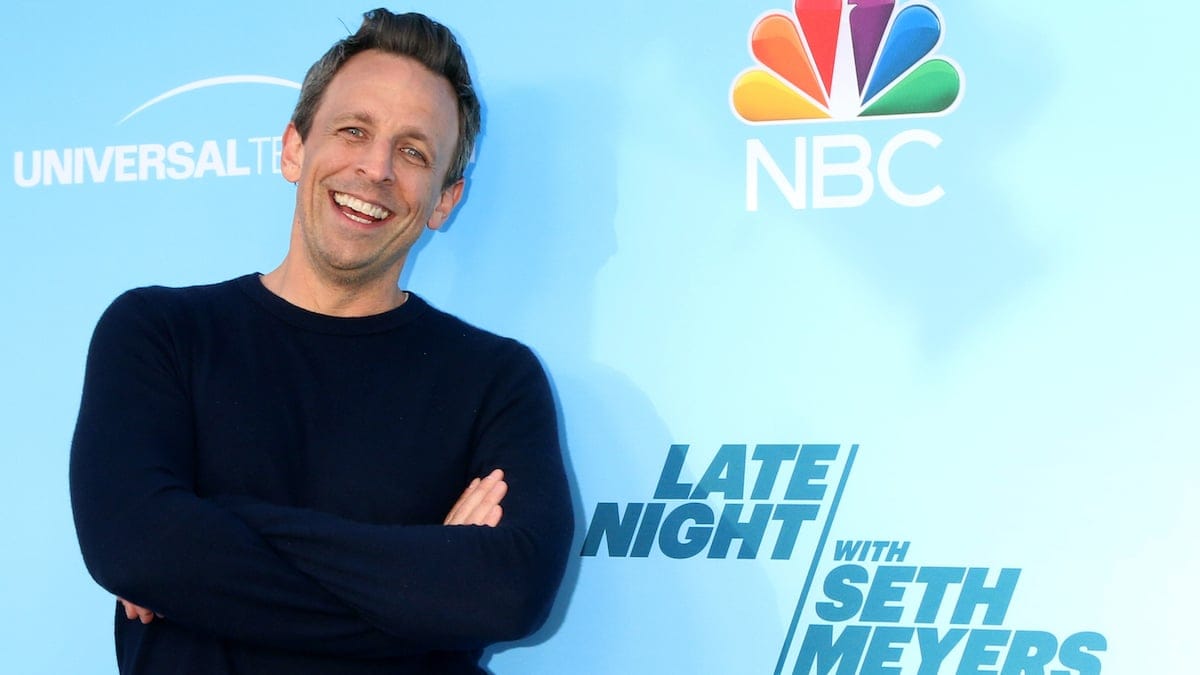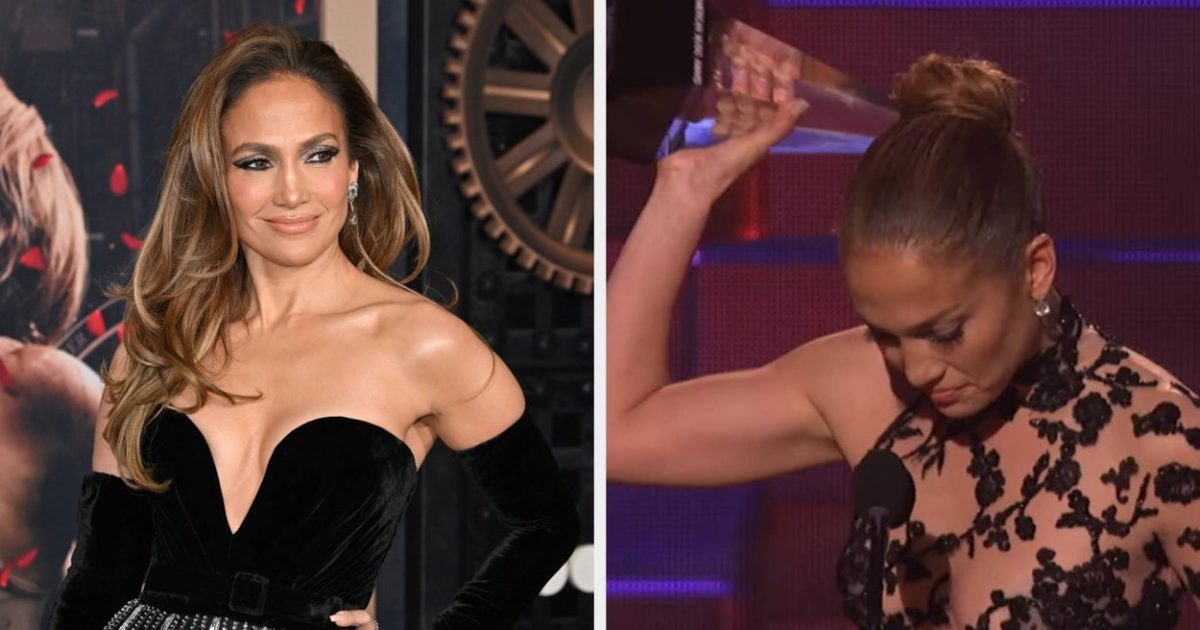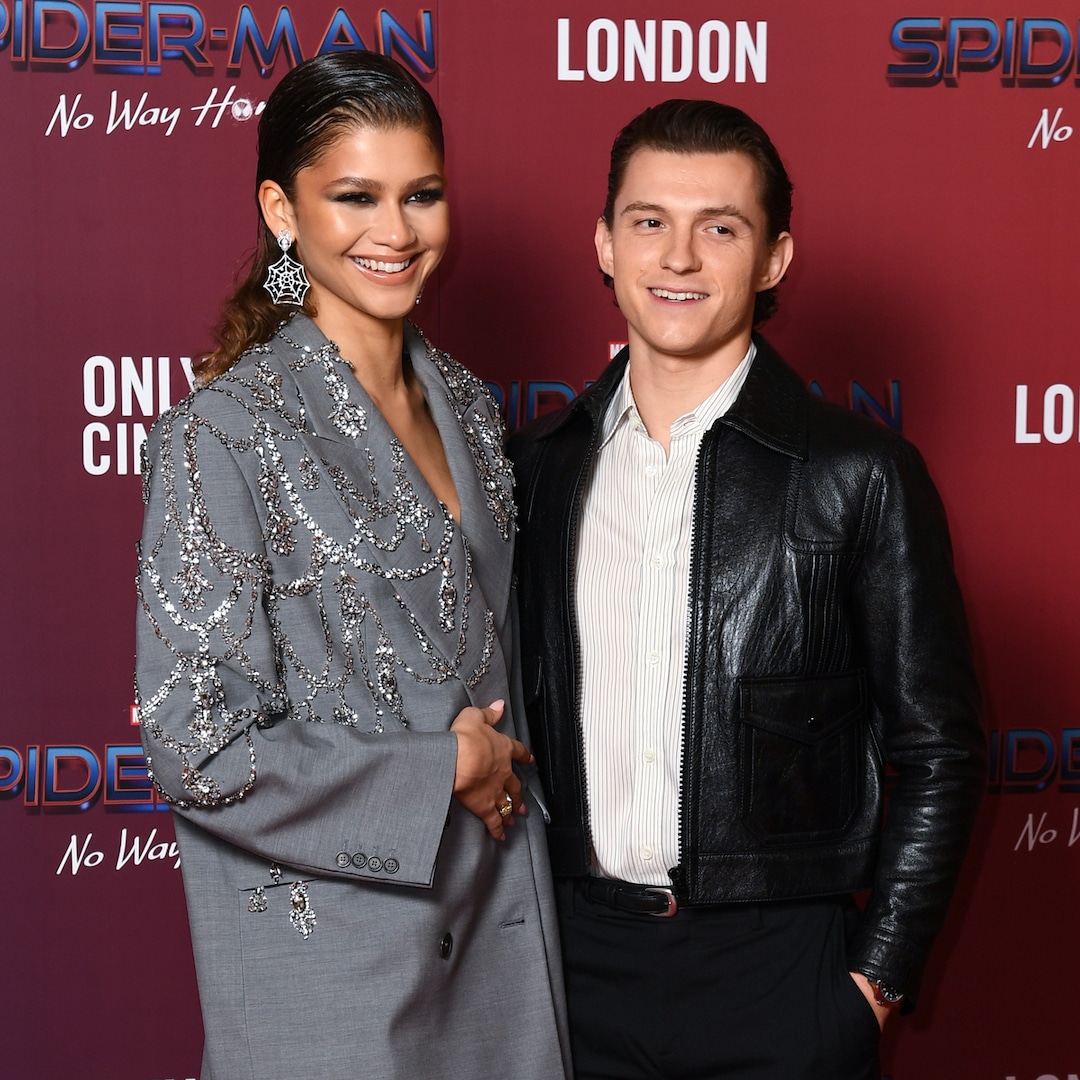
Ethan Hawke & Maya Hawke on ‘Wildcat’ and Telling Flannery O’Connor’s Story
Sep 19, 2023
The Big Picture
Academy Award-nominee Ethan Hawke and Maya Hawke discuss their biographical drama Wildcat, based on the life of Flannery O’Connor, and the passion they have for the project. The film delves into O’Connor’s process of publishing her first novel and explores themes of faith and imagination. Ethan Hawke describes the narrative structure of the film, which uses O’Connor’s own stories, non-linear storytelling, and multiple actors playing different characters to create a three-dimensional portrait of the writer.
Academy Award-nominee Ethan Hawke returns to the director’s chair for Wildcat, a biographical drama on the life of a young Flannery O’Connor he co-wrote, which celebrated its second screening at this year’s Toronto International Film Festival. Along with executive producer and star Maya Hawke (Asteroid City) and Ethan, Editor-in-Chief Steve Weintraub sat down with the father and daughter to discuss their film at Collider’s studio in the Cinema Center by MARBL to talk about their work dynamic and bringing this American writer’s life to the silver screen.
Wildcat examines the life of an artist through O’Connor’s (Maya Hawke) process of publishing her first novel. Under the direction of Hawke, the film becomes a study within a study of stories within the story about an artist’s pride and the lifeblood they pour into their work. As the young author did in her novels, Hawke places his own family in his production, and Maya Hawke portrays the strong-willed writer as she wrestles with her purpose in life. The director enlists the talent of previous collaborators for Wildcat, including Laura Linney (The Hottest State), Philip Ettinger (First Reformed), Steve Zahn (Blaze), and Vincent D’Onofrio (Chelsea Walls).
While in the studio at TIFF, the duo explains why they chose O’Connor’s work and why Maya has “been sitting with the dream of this project for so long.” They discuss their time on set, why Maya was never anxious about her father directing, the important part Linney played on set, and how unique it is to see actors double-cast in dramas. Ethan also opens up about working with his daughter, the joy he found in the editing of Wildcat, and the “unnameable” thoughts he experiences in the response to past projects like Richard Linklater’s Before Sunrise. Check out all of this and more in the video above or the full transcript below.
COLLIDER: I hate doing this right at the beginning, but no one will have seen this who’s watching this interview yet, and I want to make sure people seek it out. How have you been describing Wildcat to friends and family?
ETHAN HAWKE: Briefly put, it’s the story of Flannery O’Connor, one of the most brilliant American writers. She was writing in the ‘50s and she died in the early ‘60s, and the movie follows a few months of her life when she was about 24 years old and was given a death sentence. She finds out that she has lupus, which is the same disease that killed her father when she was young, and so it’s a really pivotal moment in her life where she has to kind of accept the reality of her situation. That’s the plot of the movie. In truth, the movie’s a lot weirder than that.
MAYA HAWKE: Yeah, in truth, it’s about the intersection of faith and imagination and exploring a young woman’s trajectory into understanding and contextualizing her upbringing as a Catholic into her growing up as a writer and how to kind of sow seeds of consistency and faith between those two things.
Image via Collider
One of the things I found interesting when I was reading about the making of this is that you actually have a history with her writing going back to when you were a teenager.
MAYA: Only the history that most people have going back to being a teenager, it’s just that usually an English professor assigns it. So it’s the ordinary history, but I guess the only less ordinary thing is that I had a dad who I thought would really like her A Prayer Journal, which is kind of an inner monologue, her addressing God as she tries to contextualize how ambitious she is with how much she wants to be a good Catholic. That was really interesting to me as a young person, especially because she had such big dreams and so much self-doubt for different reasons than I had, but I related to it and connected to it. So, we read that together, and then I ended up using it as an audition monologue when I was applying to drama schools, and then I kind of just kept wanting to play this character. Eventually, this film came together through a variety of not-that-interesting-to-talk-about, but at the time, very surprising and interesting ways.
ETHAN: What is interesting is that I’ve been acting for 30 years or so, and I’ve learned that when an actor has a real passion for a part, for a character, when there’s something inside them that they really want to communicate, it’s really smart to hitch your wagons to that horse because that kind of passion can make something beautiful. You can build around that. Maya’s love of Flannery O’Connor and how challenging a person she was– She also brings up so many interesting questions that are worth exploring.
We have lots of ideas for things we want to do. I’m frankly as surprised as anybody else that this one actually happened. You dream of making lots of different things, and it’s kind of up to the universe to decide which door is open and which one’s closed.
MAYA: It’s funny. It feels like you can have five things you’re working on, and one seems like an obvious yes, and one seems like, “Well, that will never happen, but it’s fun to talk about.” You never know what the universe is gonna make possible.
Image via Photagonist at the at Collider TIFF Media Studio
I’ve spoken to a lot of filmmakers, and one of the reasons why they attach themselves to five or eight different things is because they—huge name directors—don’t know what’s gonna be the thing that goes.
ETHAN: You really don’t know. And the truth is almost any story could be great if told the right way. One of my favorite Flannery O’Connor lines is that any human being who lives to around the age of eight has more than enough material for a lifetime. Whatever is happening – you could write a great novel about the Collider set here if you were observant enough.
I don’t think I’m smart enough, but yes, you’re right.
MAYA: [Laughs] You could do, like, sketch comedy.
ETHAN: You could do something cool.
If we introduce the element of directors and actors and what it’s like behind the scenes, but it could be a little too inside baseball.
MAYA: I love inside baseball.
ETHAN: Moby Dick is inside baseball, right? You can do great work from inside baseball.
I will remember this, and when I put it together, the two of you are getting a phone call if you do not mind.
ETHAN: Very good. We accept.
But one of the things I found so interesting is the way you told this story using her stories, having people play multiple characters, and non-linear storytelling. Can you talk about the narrative structure of how you wanted to tell the story?
ETHAN: I believe that it’s an old, ancient idea that thought leads action. Everything in this room happened first in our heads. It has to be dreamed of before anything exists. In a lot of ways, people always think, “Oh, your dreams, your imagination, that’s not real,” but in many ways it is real. I had this experience when Maya had the idea of making a movie about Flannery O’Connor. I was like, “Alright.” I had read a bunch of her when I was younger, but I just spent the summer, and I read her entire works. I started to see her arise from her own writing, and I just could picture this woman, and I thought, “Wow, she’s communicating who she is by her themes and what she’s thinking about.” I was like, “Could you make a movie that did that?”
And how exciting that would be as an actor that we all have different aspects of ourselves. People like to say, “He’s this way,” or, “She’s that way,” or, “This person’s that way…” Well, they are that way in that context, you know? And I thought, “Wouldn’t it be an exciting part to give Maya to play the many different aspects of Flannery O’Connor?” Not just one characterization but to create a three-dimensional portrait of a young woman by showing all the different ways that she could be. And I thought, “Wow, if that was well executed, that would be a movie worth seeing.” And that’s where it all came from.
You’ve been directed by very talented people, but what is it like when your dad is giving you direction and maybe you’re not delivering exactly what he wants?
MAYA: You know, it’s funny, when we started this project, both of our friends came up to us and were like, “Oh, are you nervous to work with your daughter? Are you nervous to work with your dad?” so persistently that we started to get nervous. Like, we weren’t nervous about that aspect, and I think a big part of it is that a collaborative dynamic is one we’ve had my whole life—I was about to say “our whole lives,” and then I remembered I wasn’t there for the first half of yours—but my whole life. So working together, like helping me do audition tapes, helping me with my Juilliard audition, doing play readings together, reading out loud, writing poems, and working together and being in a dynamic of understanding that we were learning from each other and growing and finding the truth between the two different opinions that we’re communicating, is what we’ve done our whole life. So, my dad giving me a note felt better than anybody else ever giving me a note because I believe that he thinks I’m worthwhile, and that’s the scary thing when you’re working with someone is, “Do I trust their note? Do I think that they know what’s good? Do they think I’m garbage? How bad is this going to make me feel about myself?” And I’d really trust that he knows what’s good, in terms of acting, both because he’s really good and has been teaching me things my whole life.
I also—This is such a long answer that was unnecessary that I’m realizing halfway through—but I also…
Image via Photagonist at the at Collider TIFF Media Studio
No, it’s really good.
ETHAN: I like it because it’s complimentary of me.
MAYA: It is, yeah. I also know that he likes me, so if he would give me a note, it didn’t make me worry that he had regretted hiring me, you know?
ETHAN: There’s so many things I want to say to that. One is that one of the great, wonderful things about getting older, and you hear as a young person that there’s this mentor/student relationship that happens, and obviously, I’ve had mentors, but what I didn’t know is how wonderful, when you are the alleged mentor, how much you’re learning from the younger person. I didn’t know that. You’re learning how to communicate what you’ve learned and put it into words, and you’re also absorbing their fire, their passion, their integrity, their enthusiasm, these really valuable things that get lost along the way. So, the two of us felt like it was a great dynamic for us. We knew that to be blessed as a father and daughter, to get to have an at-bat, a chance to make meaningful, substantive work together, that was a luxury.
MAYA: We had to work the hardest we’ve ever worked.
ETHAN: There’s a target on your back when you do that. Like, “Why do you get to work with your family?” So you have to try at least to do the best you possibly can, and I sensed it for Maya. Maya was the first there, and she was the last to leave. She was working so hard. She was helping me reach out to actors, helping us rehearse. And Laura Linney is a huge part of this dynamic, too. She’s not here today, but she was a pivot point that we both built around.
Yeah, she’s kinda good.
ETHAN: She’s kinda good. She has a future, I think, because of my direction. I think she had some breakthroughs. [Laughs] You know what I mean? I really guided her.
MAYA: Working with me really inspired her. [Laughs]
That is 100% true, without a doubt. So, I love talking about the editing room because it’s where it all comes together. How did the film change in the editing room in ways that perhaps you weren’t expecting, and did you ever want to visit the editing room to see which takes he was going to use, or were you sort of like, “I don’t want to see it until there’s a cut that he’s happy with?”
MAYA: I have been sitting with the dream of this project for so long that being a part of bringing it into reality in that editing way– When I came and saw an early cut, I was like, “Oh, I want to see it when it’s done.” I felt so vulnerable in that process because I put so much of myself into it, and I love the movie so much now. But I wanted the director to shape the movie. Someday, I hope to get to sit in an editing room, but it wasn’t today.
ETHAN: You know, it’s funny that you say that because you first started talking about trust in a relationship, and part of why I think it felt good for us working together is because we trust each other. And, who was just in your room right here was Richard Linklater [for Hit Man], and it was kind of the first experience I had when I was exactly your age working with him where I didn’t really want to see multiple cuts of the movie. I understood I put a lot into Before Sunrise, and I cared a lot about it, but I really did trust him to make the right decisions. He had invited me so much into the process while we were filming that I felt like it was important not to disrespect that invitation, and I felt like you gave that to me.
MAYA: That’s exactly what I felt. I was worried that if I started getting in, I would be like, “You have to use take three!”
MAYA: Yeah, you’re such an artist. You can’t do it halfway. Maya can’t do it halfway. She’s either gonna be in the room breathing down my neck the whole time or let go, and you decided to let go.
MAYA: Exactly.
ETHAN: In regards to the actual math of editing, I love it because it’s like a Rubik’s Cube or something. When it’s the right cut, it seems so obvious, but it avoids you for weeks sometimes. “Why is this scene not working? Why? Oh, you’re supposed to be on her listening, not on him talking.” Or there are these weird little things that happen, the music and the rhythm of editing, that I find so interesting.
If you don’t mind, I’m gonna have to ask another question, but it’s not about this film. How do you feel when someone’s sitting across from you wearing a bootleg shirt of a movie that you did?
MAYA: He wonders where his five cents are.
ETHAN: [Laughs] Yeah, “Do I get a profit?” No, I think mysterious thoughts even to myself. Like, you’re told your whole life what the definitions of success are—status, accumulation of wealth, power, awards, these things that we see as symbols—and if somebody’s got a T-shirt on of a movie you made 27, 28 years ago, that means something else that’s unnameable to me.
MAYA: And a movie that was hard to make, a movie that no one told you you have to make, not a giant– like, an art movie, a poem.
ETHAN: Yeah, that movie was a flop. People didn’t really like that movie when it first came out. People were viewing it, there were no T-shirts made the year it came out, you know? Rick and I used to joke, “This is the lowest-grossing film to ever garner a sequel,” [laughs] which I think is true. So, I knew we had friends, I knew it was a good movie, I knew there were friends in the world, like-minded people like yourself, that would like the movie, we just didn’t find them right away. So, it gives me hope that every project, you don’t know what happens in the universe, does that make sense?
Image via Photagonist at the at Collider TIFF Media Studio
100%. I’m curious for you, though, growing up with a dad who is an actor and has done so many cool projects, can you watch his films and enjoy them as an audience member, or do you see your dad? What is it like actually having a family member in the movie?
MAYA: Yeah, I have two.
ETHAN: Soon to be three.
MAYA: Soon to be three, yeah. First of all, I’m not an expert in that I didn’t grow up watching all– like, it wasn’t like, “Oh, every Friday night we catch up on the filmography,” you know? I didn’t go to every premiere, I didn’t really start going and seeing things until I got really interested in doing it myself. We kept our family space a family space and not a museum of anyone’s accomplishments – except, you know, like yogurt label prizes for, “Thanks for playing at Field Day.” But it’s cool! I saw him in a lot of plays when I was younger, and if bad things happen to people that you love, even in stories, it’s really upsetting. I felt that way watching movies, too. I watched Kill Bill 2, and I was, like, deeply, deeply upset.
Did you see it at too young of an age?
MAYA: What’s too young? I mean, I think I saw Ghostbusters at 12 and it felt too scary. I’m sensitive. It’s weird, and it’s fine, and it’s cool sometimes, and sometimes it’s sad.
Yeah, I have actor friends, and sometimes they disappear into the role, and sometimes I’m seeing my friend on screen. It’s really weird.
MAYA: Yeah, it all depends.
Actually, in the movie, there’s the preview before the movie, and I want to know what was the inspiration for that? It’s cool and unusual and different, but it’s also sort of representative of the tone and the movie itself.
MAYA: I’m so glad you felt that way.
ETHAN: You just answered your own question.
I didn’t mean to!
ETHAN: [Laughs] No, the movie is odd. I think when people hear that they’re going to see a biopic, they have this idea of what a biopic is; it’s kind of a cradle-to-the-grave story and it’s gonna feel good, and it’s gonna have a wonderful central performance, but it’s gonna be educational, you know? I’ve never been interested in teaching like that. I always feel like when you’re teaching you’re losing. I wanna make a movie, you know? It’s not class. And, I wanted to let you know right away that Flannery O’Connor was really funny and really peculiar, and we were gonna be really peculiar as well. And so to kind of knock you off balance to hopefully get you into not knowing what to expect, it’s kind of like a left hook.
Image via TIFF
Listen, I’ve seen way too many movies, or actually, I’ve just seen a lot of movies.
ETHAN: You haven’t seen enough.
As I said it, I’m realizing I totally messed that up. One of the things I love is when a movie does things where I don’t see what’s coming because normally in a two-hour movie it’s like you know every beat.
ETHAN: There’s a math to it, too. It’s really interesting—I mean, people haven’t seen the movie now—but Maya and Laura are double-cast throughout the film. Maya asked me early when we were making the movie, “What are some movies I can watch to prepare where the actors have been double-cast a lot?” And there just aren’t very many.
MAYA: Other than comedic performances.
ETHAN: Yeah, Eddie Murphy does it brilliantly all the time, but there aren’t a lot of dramas that really ask you to emotionally invest this way with playing multiple roles. So, we knew that would be hard. And also, there’s a lot of people in the world that don’t know at all who Flannery O’Connor is, and I thought that little trailer tells them a little about what kind of writer she is. She’s not Louisa May Alcott, she’s not Emily Dickinson. We’re so conditioned…
MAYA: Her writing is scandalous.
ETHAN: Her writing is scandalous. She’s wild, and so I wanted to let him know that right off the bat.
Wildcat screened at the 2023 Toronto Film Festival. Special thanks to MARBL Restaurant for hosting Collider as well as the additional sponsors Sommsation, a top wine experience brand and online shop and Molson Coors’ Blue Moon Belgian White as the beer of choice at the Cinema Center. Additionally, Moët Hennessy featuring Belvedere Vodka featured cocktails and Tres Generaciones Tequila.
Publisher: Source link
Jennifer Lopez Finally Understands Mi Gente Latino Meme
Jennifer Lopez Finally Understands Mi Gente Latino Meme Kicking off 2025, J.Lo is now promoting Unstoppable, a new biography drama in which she stars alongside Moonlight actor Jharrel Jerome. At the 2011 American Music Awards, Jennifer won Favorite Latin Artist…
Jan 11, 2025
Tom Holland's Dad Shares Insight Into Zendaya Engagement
Tom Holland became the greatest showman for his proposal to Zendaya. Just days after the Spider-Man actress turned heads at the 2025 Golden Globes with a 5-carat ring on that finger, Tom's dad... Disclaimer: This story is auto-aggregated by a…
Jan 11, 2025
Aubrey Plaza Issues Statement After Jeff Baena’s Death
The 40-year-old star and Jeff’s family issued a statement to People on Monday, where they called their loss an “unimaginable tragedy.”The Los Angeles County coroner’s office previously determined that Jeff died by suicide in his LA home. He was 47…
Jan 10, 2025
Jill Duggar’s Husband Clarifies Where He Stands With Jim Bob Duggar
Jessa Duggar (m. Ben Seewald)Jim Bob and Michelle's fifth child, Jessa Duggar, was born Nov. 4, 1992. Jessa met Ben through church and he began courting her in 2013—the old-fashioned approach to romance coming as a brand-new notion to a lot…
Jan 10, 2025











